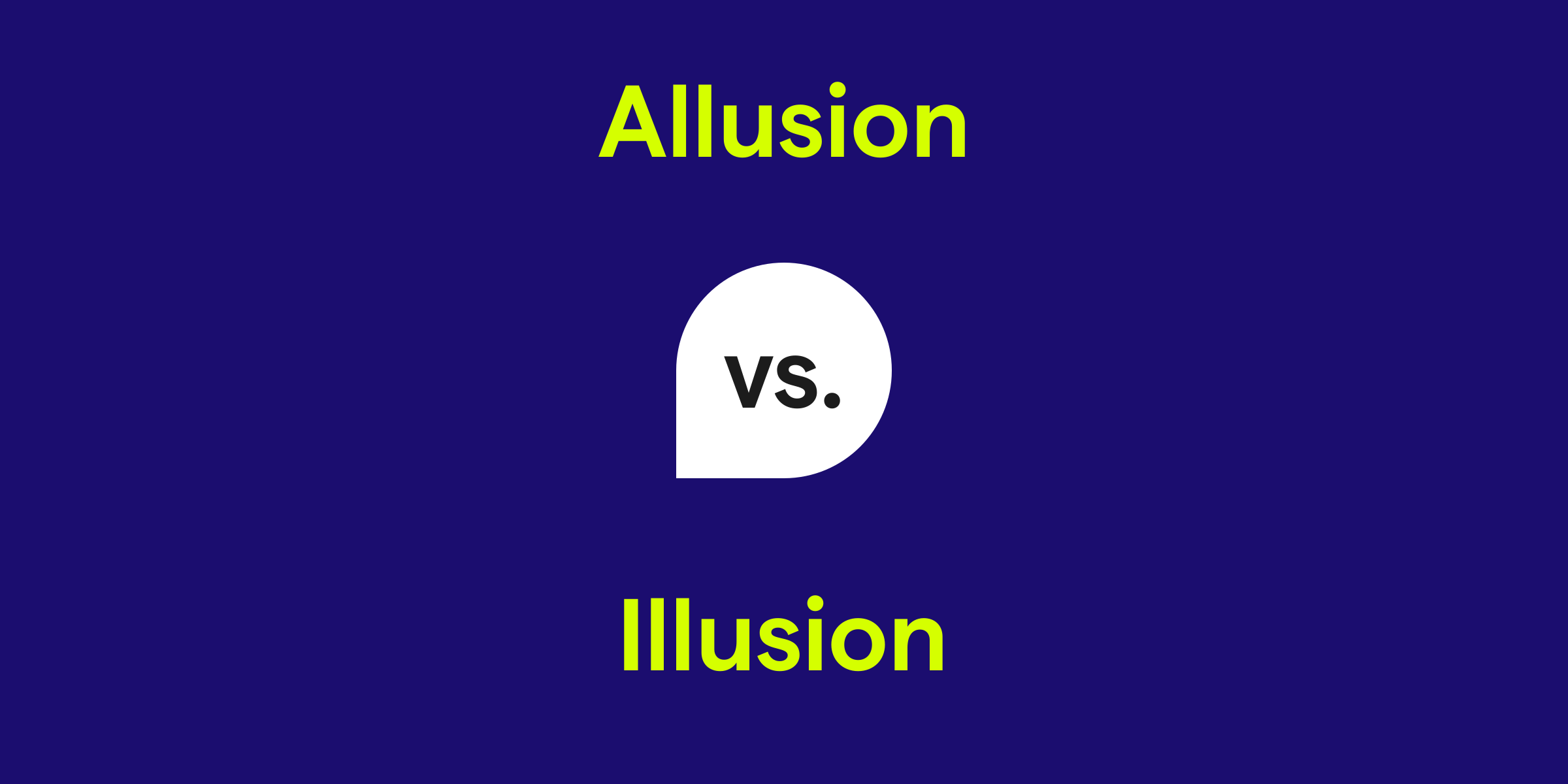Allusion vs. Illusion: What's the Difference?
Understanding the distinction between allusion and illusion is crucial for clear communication. An allusion is an indirect reference to something, often cultural, literary, or historical, used to evoke particular meanings or associations without explicitly mentioning them. An illusion, on the other hand, is a deceptive appearance or impression, a false idea or belief, or something that seems to be different from what it actually is due to deceptive visual or sensory stimuli.

How do you use the word allusion in a sentence?
Use allusion when you want to suggest or hint at something indirectly through an intelligible reference. Writers often use allusions to connect with their audience by bringing up points of common cultural knowledge or shared experiences. Allusions rely on the reader or listener recognizing the reference to add depth to the writing or conversation.
Examples of allusion in a sentence
- His latest painting was full of allusions to Van Gogh's Starry Night.
- The title of the novel is an allusion to Shakespeare's famous soliloquy.
- Her speech included a clever allusion to the political slogan that was popular in the 1960s.
How do you use the word illusion in a sentence?
The word illusion should be used when referring to a false perception or a deceptive visual experience. It can also be employed abstractly to describe false beliefs or expectations. Illusions play on the senses and can be created intentionally, as in magic tricks, or occur naturally, like a mirage in the desert.
Examples of illusion in a sentence
- The magician's skillful use of illusion left the audience in awe.
- From a distance, the hologram created a perfect illusion of a three-dimensional object.
- They labored under the illusion that they would be promoted, but the company had other plans.
Allusion and illusion definition, parts of speech, and pronunciation
Allusion definition:
An allusion is a figure of speech that makes a reference to a place, person, or something that happened. This can be direct or indirect and often relies on the audience's knowledge for full understanding.
Allusion parts of speech:
Allusion pronunciation:
Allusion is pronounced as /əˈluʒən/.
Illusion definition:
An illusion is a false idea or belief, or a deceptive appearance or impression. It often refers to things that are not as they appear to be or are perceived incorrectly by the senses.
Illusion parts of speech:
Illusion pronunciation:
Illusion is pronounced as /ɪˈluːʒən/.
An allusion is a figure of speech that makes a reference to a place, person, or something that happened. This can be direct or indirect and often relies on the audience's knowledge for full understanding.
Allusion parts of speech:
- As a noun, allusion is used to indicate a covert mention of something. For instance: Her poetry is rich with allusions to Greek mythology.
- There is no verb form of allusion.
Allusion pronunciation:
Allusion is pronounced as /əˈluʒən/.
Illusion definition:
An illusion is a false idea or belief, or a deceptive appearance or impression. It often refers to things that are not as they appear to be or are perceived incorrectly by the senses.
Illusion parts of speech:
- As a noun, illusion refers to a misleading image presented to the vision or to the mind. For example: The oasis was just an illusion caused by the desert heat.
- There is no verb form of illusion.
Illusion pronunciation:
Illusion is pronounced as /ɪˈluːʒən/.
Allusion vs. illusion in a nutshell
Allusion and illusion are both nouns but differ significantly in their meaning and context. Allusion is a noun describing an indirect reference, usually literary, used to subtly point to a piece of knowledge. It relies on the audience's familiarity with the subject. Illusion, also a noun, describes a deceptive visual or mental impression, indicating something that is unreal or misperceived. Remember that allusion 'alludes' to something, while illusion creates a deceptive illusion of reality.
Get AI Writing Assistance Wherever You Type
Make sure your vocabulary is on point and every punctuation mark is in the right place, no matter where you’re working. Grammarly works across more than 1 million websites and apps so you can improve your writing without copying, pasting, or breaking focus.

More Commonly Confused Words
Interest piqued? Pore (not pour) over other commonly confused words to help your writing reach peak (not peek) performance.